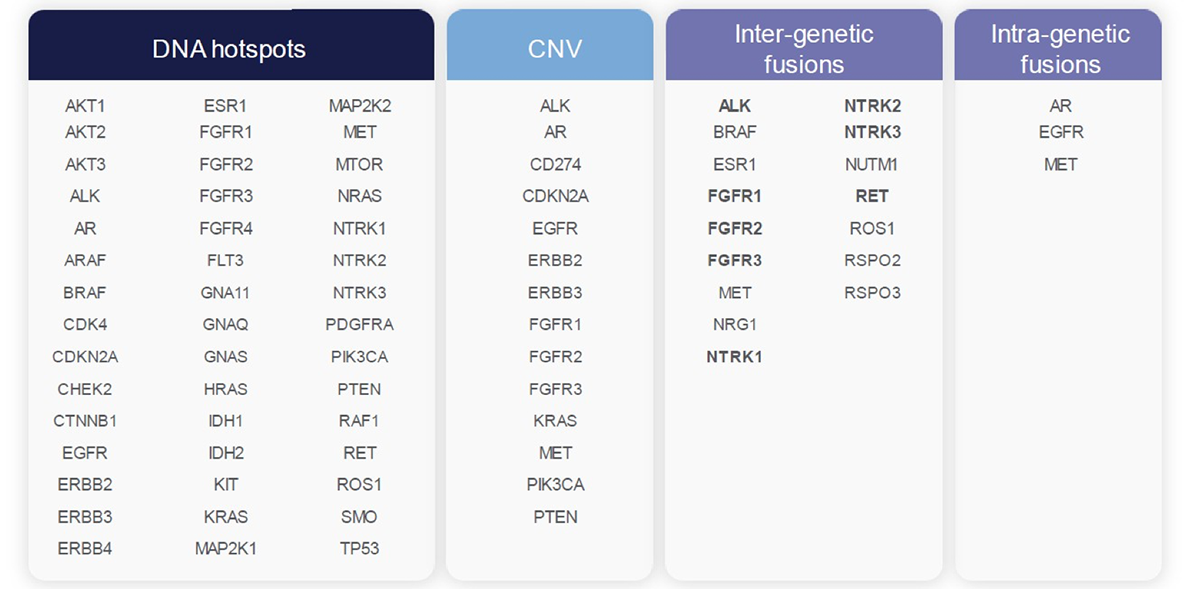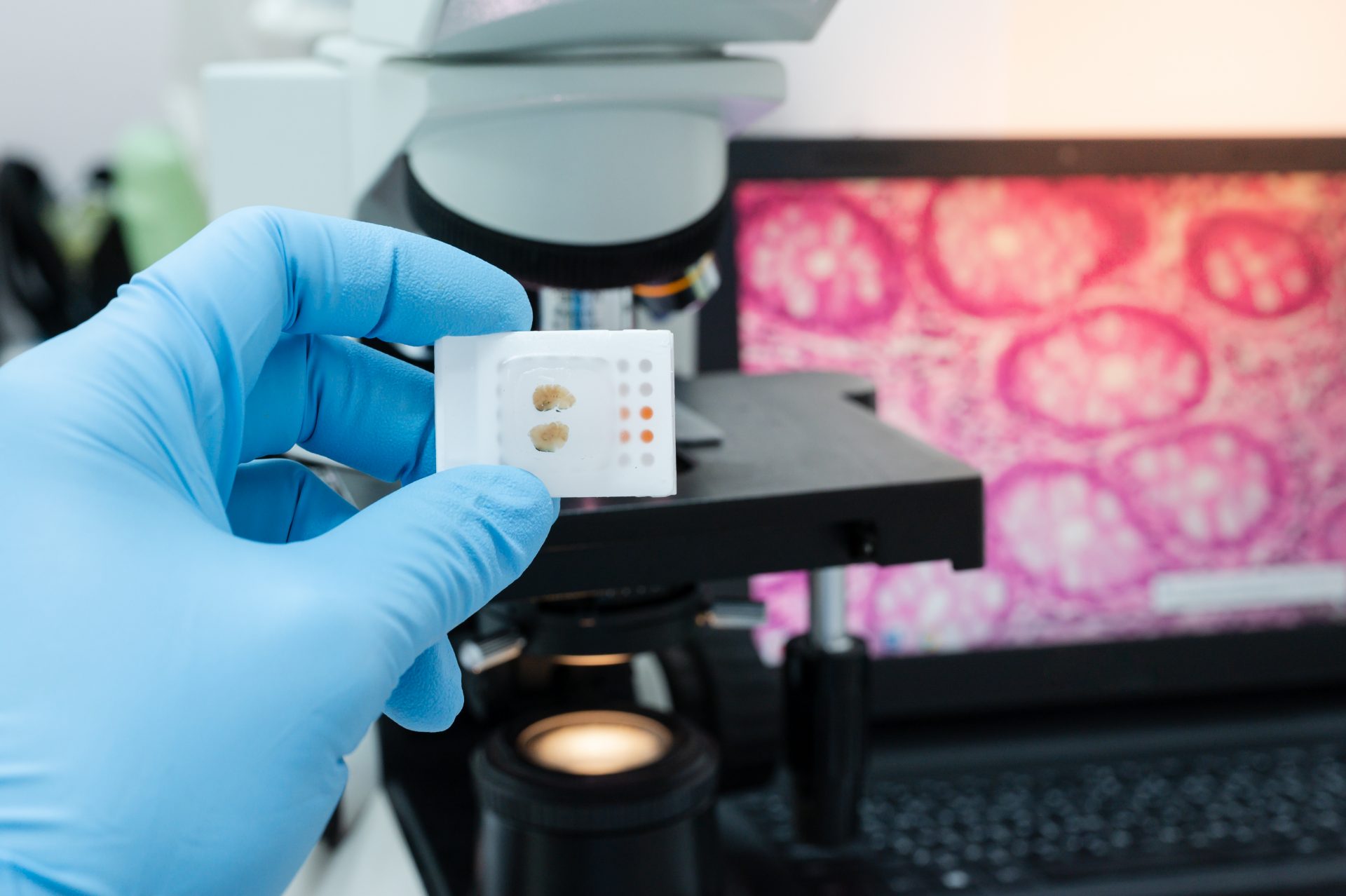Oncology has been the vanguard in the field of precision medicine, with a multitude of targeted treatments and immunotherapies now available for a wide range of cancers. The use of genomics to inform drug discovery is a cornerstone of this precision medicine development, and technological and analytical advances have made it possible to rapidly identify genetic variations in tumor tissue. These molecular fingerprints provide a window into mechanisms of disease and potential drug targets. The dilemma for researchers, however, is that actionable mutations occur at a very low frequency and finding biospecimens with particular variants to support research is a challenge.

Rob Fannon, MPH, MBA
General Manager, Biospecimen Solutions, Precision for Medicine
One company, Precision for Medicine, is solving this dilemma with a new Precision Oncology Sequencing Initiative (Project P.O.S.I.) in the Biospecimens Solutions group, home to more than 25 million biospecimens.
“Sourcing high-quality, deeply phenotyped biospecimens with a specific mutation of interest is like finding needles in a haystack,” said Rob Fannon, General Manager at Precision for Medicine. “Our vision is to create an ecosystem of data-rich samples that researchers can leverage to push the boundaries of precision medicine.”
An Ambitious Genomic Profiling Initiative
To move this vision forward, Precision for Medicine—in partnership with multiple research partners—is undertaking an ambitious next generation sequencing (NGS) initiative to perform mass screening of samples in its biorepository for key biomarkers across 11 cancer indications. The first phase of this two-phase initiative focuses on NGS screening of the company’s extensive library of formalin-fixed, paraffin-embedded (FFPE) tumor tissues, all of which have been collected with Institutional Review Board (IRB) approval. These FFPE samples are being screened on the Ion Torrent Genexus System with the Oncomine Precision Assay, which includes the most prevalent and potentially relevant cancer driver variants across 50 genes. The assay is designed to detect 2,769 unique variants, including hotspot mutations, copy number variation (CNV) genes, and fusion isoforms.

Figure 1. Oncomine Precision Assay Content
“With this initiative, we are adding up-to-date genomic profiles to thousands of FFPE samples in our library, many of which were collected long before the discovery of these variants,” explained Fannon. “Combined with standard of care and surgical pathology report data elements, these biospecimens are now powerful building blocks for exploring disease drivers, drug targets, and novel biomarkers and, ultimately, fueling AI-driven discovery.”
The biospecimens can also be used for other molecular characterization strategies such as immunophenotyping, epigenetic profiling, gene expression profiling, and single-cell analyses, all of which Precision for Medicine is undertaking with its participating clients.
Enabling End-to-End Analysis
In phase II of this initiative, the company will be performing mass screening of “liquid biopsies” using the same Oncomine Precision Assay. Blood-based biomarkers offer additional flexibility, as they are less invasive and can be collected longitudinally. The IRB-approved protocol leverages Precision for Medicine’s extensive network of patients and clinicians, prospective collections capability, and full spectrum of specialized laboratory services.
“Our Biospecimen Solutions team is a specimen provider embedded within the Precision for Medicine laboratory network consisting of 7 labs built to support biomarker-driven development programs,” added Fannon. “Because we are technology-, platform-, and analyte-agnostic, we bring a multi-omic perspective that enables bespoke discoveries.”
As other biomarker data is layered onto genomic profiling, the volume, velocity, and diversity of data increase exponentially, introducing a new challenge of how to make full use of these data assets to generate insights and guide decision-making. Precision for Medicine houses all this data within the proprietary QuartzBioSM platform, which includes proprietary AI- and computational biology-enabled tools that researchers can be used to help their clients find connections or relationships among diverse biological data to inform disease modeling, pathway selection, and patient stratification.
“At Precision for Medicine, we bring together comprehensive biospecimen solutions, deep scientific knowledge, laboratory expertise, and advanced data sciences to maximize insights into patient biology and to accelerate the pace of scientific discovery,” said Fannon.
To learn more about the Precision Oncology Sequencing Initiative (Project P.O.S.I.) and Precision for Medicine, Biospecimen Solutions, visit www.PrecisionBiospecimens.com.


